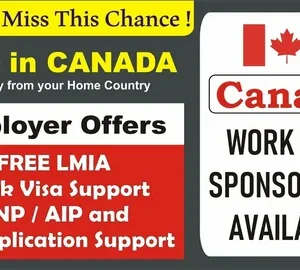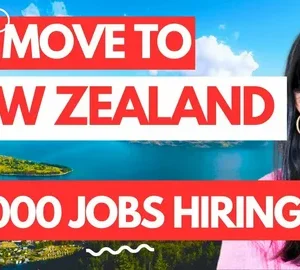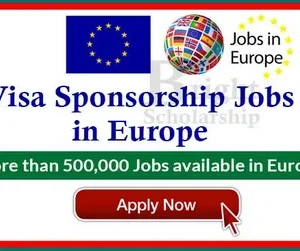Introduction
Ireland’s booming tourism and hospitality sectors have created an acute labour shortage in 2025, especially in roles like housekeeping and cleaning. To bridge this gap, an increasing number of hotels, care homes, and commercial cleaning companies are now offering visa sponsorship for housekeepers & cleaners, often bundling in live-in accommodation and foregoing English language tests. This unique opportunity—no IELTS required & accommodation provided—has attracted international jobseekers eager to work abroad with minimal barriers. In this post, we’ll explore how these sponsorship schemes work, compare Ireland’s approach with other countries, and unpack the implications of this emerging trend.
Why Ireland Is Offering Visa Sponsorship for Housekeepers & Cleaners
- Tourism Rebound: Ireland welcomed over 11 million overseas visitors in the first quarter of 2025—surpassing pre-pandemic levels—and hotels are scrambling to fill housekeeping rosters with sponsorship Visa. (LinkedIn)
- Labour Shortage: Domestic candidates often prefer higher-paid or hybrid/hospitality-adjacent roles, leaving housekeeping and cleaning positions unfilled. Industry groups project a shortfall of 8,000 hospitality workers by year’s end. (The Times)
- Competitive Advantage: Offering sponsorship, accommodation, and skipping IELTS appeals to a broader international talent pool, giving employers a recruitment edge in a tight market.
Understanding Irish Employment Permits for Cleaning Roles
Ireland’s employment-permit framework provides several routes for non-EEA nationals. Below is a concise comparison:
| Permit Type | Key Features | Min. Salary | IELTS Required? | Eligible Occupations |
|---|---|---|---|---|
| General Employment Permit | Standard route for roles not on Critical-Skills list; quota-controlled; employer applies; 6–8 week processing. | €30,000 p.a. | No | Wide range, excluding ineligible categories (Enterprise Ireland) |
| Critical Skills Employment Permit | Fast-track for highly skilled professionals; low quota restrictions; 2 year duration; pathway to PR. | €64,000 p.a. (or €32,000 p.a. in shortage list) | No | Skills specified on Critical-Skills List |
| Dependant/Partner Permit | Family members of permit holders; work in most roles except domestic settings; no salary threshold; employer’s home-setting roles restricted. (Enterprise Ireland) | N/A | No | All ineligible list occupations except domestic |
| Atypical Working Scheme | Short-term or irregular work not covered elsewhere (e.g., interns, locums); limited to specified sectors; employer-sponsored. | Varies | No | Non-standard placements (not typically housekeepers) |
Note: Housekeeping and cleaning roles (SOC 6231 & SOC 9233) are generally ineligible for standalone employment permits under Schedule 4 of SI 444/2024 (Enterprise Ireland). However, placements in commercial-cleaning firms (industrial sites, hospitals) can sometimes be structured under atypical or agency-lead schemes.
🧹 “Ireland Offering Visa Sponsorship for Housekeepers & Cleaners in 2025”
Many recruiters and hoteliers promote Ireland Offering Visa Sponsorship for Housekeepers & Cleaners to international candidates. Key highlights:
- No IELTS Required
- Irish work permits do not mandate an English language test like IELTS or TOEFL. Instead, applicants must demonstrate basic communication ability in the recruitment interview. (World Visa Group)
- Accommodation Provided
- Employers often bundle live-in housing (shared staff apartments or on-site units) as part of the package, easing relocation and lowering living costs.
- Competitive Wages
- Starting rates range from €14–€16 per hour, often above the national minimum (€13.50 /hr), plus potential overtime. (Indeed)
- Straightforward Responsibilities
- Duties focus on room turnover, deep-clean schedules, and supply restocking—ideal for candidates seeking predictable, shift-based work with sponsorship visa.
- Pathway to Long-Term Residency
- While housekeepers aren’t on the Critical-Skills list, time spent under a General Employment Permit (2 years) can accumulate towards Stamp 4 eligibility when changing to a qualifying role.
No IELTS Required
Traditional emigration routes often hinge on English-language proficiency tests. Ireland’s employment permits, however, focus on job-specific qualifications and employer sponsorship rather than formal language scores.
- Government Stance: INIS guidelines make no reference to IELTS for work permits. (Immigration Service Delivery)
- Employer Practices: Most hotels conduct in-person or video interviews to gauge language skills, ensuring candidates meet basic communication needs without burdensome test fees.
- Candidate Benefits: Eliminates months of IELTS preparation and unpredictable test results, speeding up the application process.
Accommodation Provided
To attract overseas hires at scale, many Irish hospitality groups guarantee furnished, staff-only accommodation:
- Staff Housing Blocks: Converted apartments within hotel complexes.
- Hostel-Style Dormitories: Bunk-bed setups with communal kitchens and lounges.
- Rental Allowance: Some employers pay a fixed stipend directly to local landlords.
This arrangement:
- Reduces Living Costs: Cuts out Dublin’s 25% average rental-increase since 2023.
- Simplifies Logistics: No need for candidates to scout private rentals from abroad.
- Fosters Team Cohesion: Shared living encourages peer support and on-the-job learning.
Key Comparisons: Ireland vs. UK & Canada
| Feature | Ireland | United Kingdom | Canada |
|---|---|---|---|
| Visa Sponsorship | Through Employment Permits (no IELTS) | Skilled Worker Visa (often needs English test) | Work Permit (some streams waive IELTS; others require it) |
| Accommodation | Live-in staff housing offered by many employers | Rare; usually self-arranged | Rare; typically self-arranged |
| Processing Time | 6–8 weeks for General Employment Permit | 3–4 weeks for Skilled Worker Visa | 4–12 weeks, depending on stream |
| Residency Pathway | Stamp 4 after 2 years, Stamp 1G Third-Level Scheme | 5 years to ILR after Skilled Worker Visa | Varies; PR through express entry or provincial programs |
| Language Test | Not required | Required (IELTS/TOEFL) | Often required; some low-skill streams waive it |
How to Apply: Step-by-Step Guide
- Secure a Job Offer
- Apply on portals like Indeed or directly via hotel/care-home websites (Xpress Health).
- Employer Submits Employment Permit
- They choose the suitable permit type (General or Atypical).
- Gather Documentation
- Passport copy, CV, employment contract, proof of qualifications, medical insurance.
- Submit Visa Application
- Once permit approved, apply for Long-Stay (D) visa at Irish Mission abroad.
- Travel & Check-In
- Enter Ireland within validity window; register with GNIB/IRP within 90 days.
- Begin Work & Housing
- Move into provided accommodation; commence employment.
Implications and Insights into This Dynamic
- Regulatory Scrutiny: The Government’s ineligible-occupation list (effective 02 Sept 2024) still blocks most domestic cleaners (Enterprise Ireland). Firms often classify roles under industrial or care cleaning to align with permit rules.
- Risk of Scams: Be wary of agencies requesting upfront fees. Genuine employers handle all permit costs (max €1,000 application fee). Never pay for a job. (Reddit)
- Labour Market Evolution: The influx of sponsored cleaners may relieve pressure on local wages—yet also stoke accommodation demand, potentially intensifying the housing crunch.
- Career Pathways: Starting in cleaning can lead to supervisory roles (Cleaning Manager Permit) or transitions into hospitality management via upskilling programmes.
- Cultural Exchange: International hires bring diverse perspectives, enhancing service quality, but require robust onboarding to align with Irish workplace norms.
Conclusion
Ireland’s visa sponsorship for housekeepers & cleaners in 2025—with no IELTS required & accommodation provided—presents a compelling option for global jobseekers. While the permit landscape has restrictions, savvy employers and agencies structure roles to comply, offering a streamlined pathway into Ireland’s vibrant hospitality sector. As always, candidates should verify employer legitimacy, confirm permit classifications, and keep abreast of evolving regulations to capitalize on this unique opportunity.




